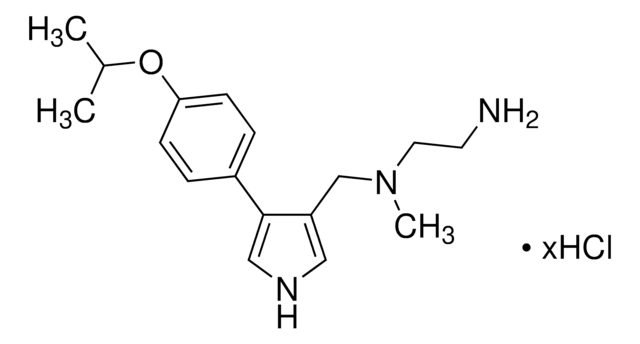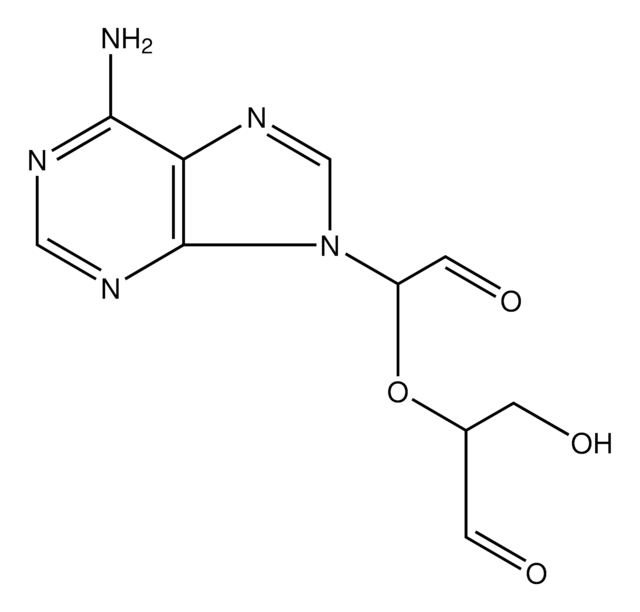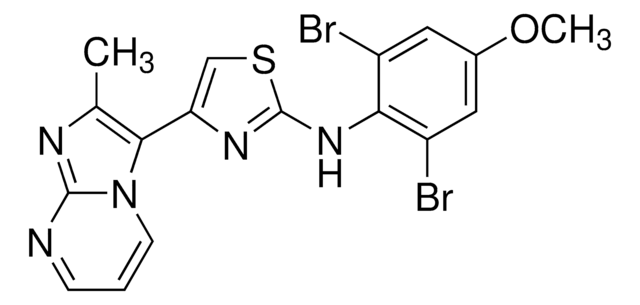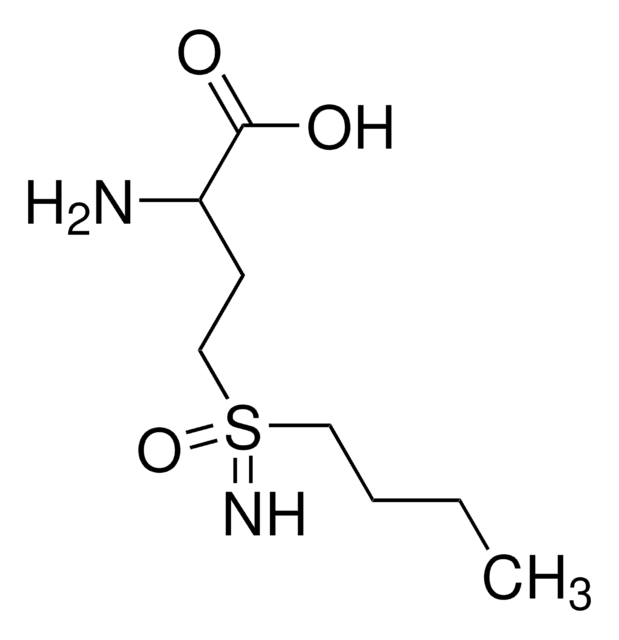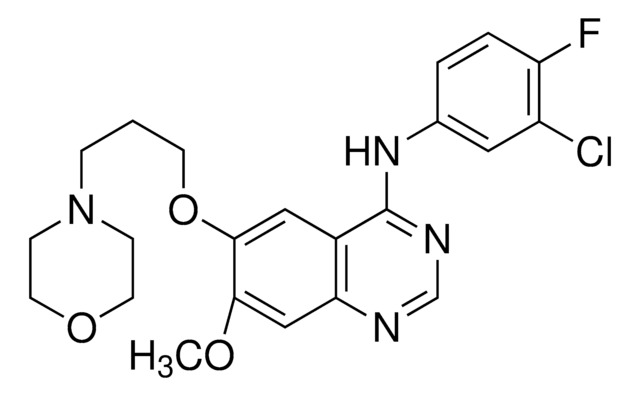SML1751
GSK591
≥97% (HPLC)
Synonyme(s) :
2-(Cyclobutylamino)-N-[(2S)-3-(3,4-dihydro-2(1H)-isoquinolinyl)-2-hydroxypropyl]-4-pyridinecarboxamide., EPZ015866, GSK 591, GSK3203591
About This Item
Produits recommandés
Niveau de qualité
Pureté
≥97% (HPLC)
Forme
powder
Couleur
white to beige
Solubilité
DMSO: 20 mg/mL, clear
Température de stockage
2-8°C
Chaîne SMILES
O=C(NC[C@H](O)CN1CCC(C=CC=C2)=C2C1)C3=CC=NC(NC4CCC4)=C3
Actions biochimiques/physiologiques
SGC2096 is the negative control for the active probe, GSK-591. To request a sample of the negative control from the SGC, click here.
To learn about other SGC chemical probes for epigenetic targets, visit sigma.com/sgc
Caractéristiques et avantages
Autres remarques
Code de la classe de stockage
11 - Combustible Solids
Classe de danger pour l'eau (WGK)
WGK 3
Point d'éclair (°F)
Not applicable
Point d'éclair (°C)
Not applicable
Certificats d'analyse (COA)
Recherchez un Certificats d'analyse (COA) en saisissant le numéro de lot du produit. Les numéros de lot figurent sur l'étiquette du produit après les mots "Lot" ou "Batch".
Déjà en possession de ce produit ?
Retrouvez la documentation relative aux produits que vous avez récemment achetés dans la Bibliothèque de documents.
Notre équipe de scientifiques dispose d'une expérience dans tous les secteurs de la recherche, notamment en sciences de la vie, science des matériaux, synthèse chimique, chromatographie, analyse et dans de nombreux autres domaines..
Contacter notre Service technique